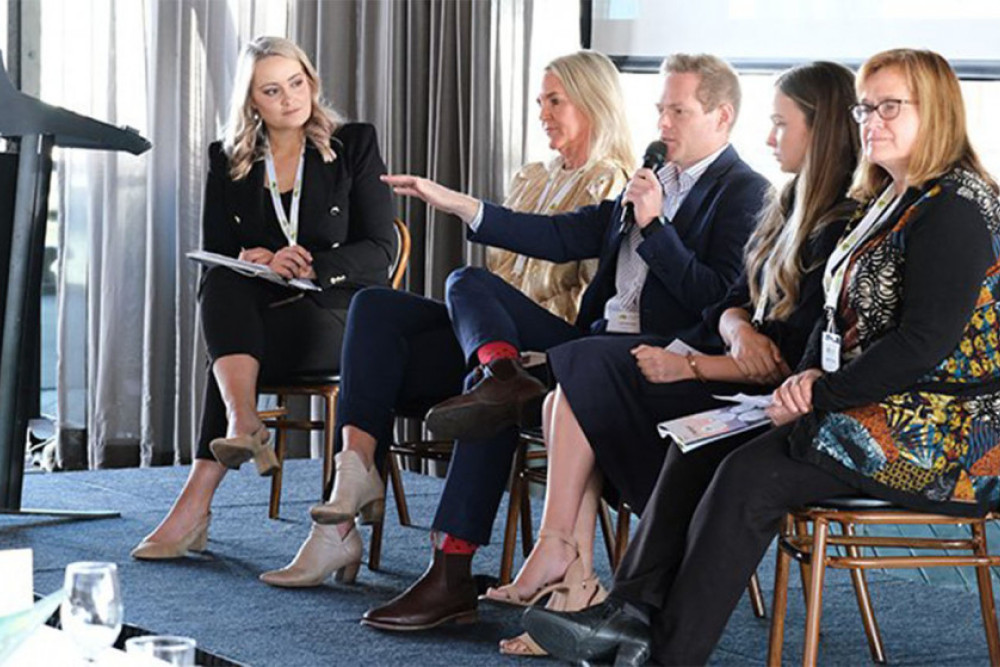Agricultural
13 July, 2022
Profitability vs sustainability
The relationship between profitability and sustainability was a key point of discussion at the 2022 Australian Beef Sustainability Framework (ABSF) Annual Update panel discussion moderated by Sky News’ Andrea Crothers.

A panel of four leading beef industry professionals navigated the importance of ensuring environmental, social and financial sustainability across the value chain.
They referred to Meat and Livestock Australia’s (MLA) new research, regenerative practices, innovation and data.
The four panelists were Barb Madden (President of the Australian Lot Feeders’ Association (ALFA) and Financial Controller at Smithfield Cattle Co.), Jenny O’Sullivan (a beef and sheep producer in the South Gippsland region), Carl Duncan (Chief Sustainability Officer at Teys Australia) and Kari Moffat (Animal Welfare Assurance Manager at AUSTREX).
Barb Madden said the feedlot industry had listened to market research undertaken by MLA, which found that consumers were motivated by animal welfare, so they have committed to all feedlots being fully shaded by 2026.
“We’re setting that benchmark of 2026 - we’re at about 60 per cent now - but we expect all feedlots under the national feedlot accreditation scheme to be fully shaded and we think it will be a wonderful day,” she said.
Jenny O’Sullivan said she’s committed to improving the land.
“We want to create habitat for biodiversity, we want to make sure our animals are healthy and flourishing and we want to make sure that our people and our families are happy and healthy and flourishing as well,” she said.
Carl Duncan said while the need to be innovative is crucial, the little things are important too.
“No leaking taps, every kilowatt hour counts, every drop of water counts, all those lean manufacturing types of activities,” he said.
In 2018, Teys set five-year targets to reduce water intensity by 10 per cent, carbon intensity by 20 per cent and to source 30 per cent of energy from renewables – and Mr Duncan said the company is on track to meet them.
Kari Moffatt said another benefit of staying up-to-date with market research and data collection is risk management.
“Data and information is getting digitally captured and I’m getting all that information here in Australia in real time and that helps with corrective action or training requirements,” she said.
“But it’s also helped us, in collecting that data, to make better decisions in how we manage risk.”
Ms Moffatt said her company, AUSTREX, has developed an app using the data which acts as custom-built auditing app for the supply chain.


